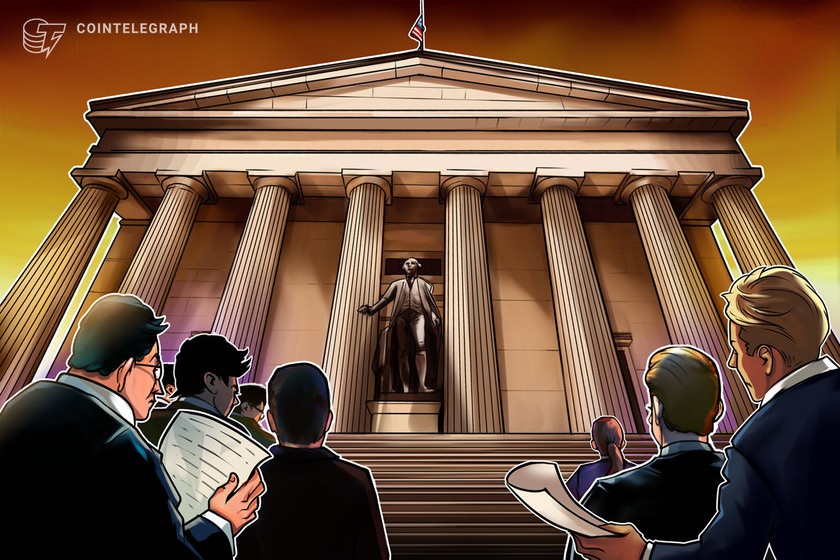‘Nothing is a coincidence with the government,’ claims US lawmaker on Operation Choke Point 2.0



Speaking at the NFT.NYC 2023, United States congressman Byron Donalds hurled criticism at recent crypto regulatory initiatives.
United States Congressman Byron Donalds criticized the country’s regulatory agencies on April 12 at the NFT.NYC 2023 conference in New York. According to Donalds, agencies like the Securities and Exchange Commission (SEC), the Commodity Futures Trading Commission (CFTC) and others are being used to activate “Operation Choke Point 2.0” by limiting crypto business access to banking services.
Operation Choke Point 2.0 describes the U.S. government’s alleged coordinated effort to discourage banks from working with crypto firms under the guise of ensuring safety and stability. Crypto industry commentators believe government attempts to restrict access to the crypto sector have ramped up in 2023.
“What I’ve seen in my short time in Congress is that nothing is a coincidence with the government agency,” the legislator said during a keynote speech, referring to the U.S. government’s recent crackdown on crypto. “They are talking across lines a lot more than they ever used to. They are finding various ways to squeeze an outcome that they want.”
Along with efforts to limit the banking system’s exposure to crypto, Donalds believes the Federal Reserve is “laying the foundation for a CBDC,” or central bank digital currency, with recent enforcement actions being part of plans for a digital dollar.


The Floridan congressman also noted that the U.S. government doesn’t have enough knowledge about the crypto industry to regulate it properly, and through its agencies, is relying on a “legacy framework of 100 years” to create rules and regulations for today’s needs. “To bring us into lay terms, […] This will be like asking a sixth-grade basketball player to ref the NBA finals,” he said before urging an updated regulatory environment for digital assets.
Donalds also labeled SEC chair Gary Gensler as “a very arrogant individual,” claiming that “He believes he is the smartest person in every room.” Donalds continued:
“Old Washington, which is basically Washington today, loves having the alphabet soup agencies […] They’re all relics of a time when you had to fax in before fax machines. This is when the regulatory agencies were built. Old Washington, like anybody else, doesn’t like moving off the thing that they created.”
Helping regulators understand the nuances of digital assets, blockchain and crypto more generally are necessary for a better crypto environment in the country, according to the congressman.
United States authorities appear to have resurrected past enforcement tactics to impose restrictions on cryptocurrency firms and banks serving them. The alleged strategy consists of isolating the traditional financial system from the crypto market by relying on “multiple agencies to discourage banks from dealing with crypto firms,” with the goal of leading crypto businesses to become “completely unbanked,” sources told Cointelegraph in early February.
Recent reports reveal that the U.S. arm of global crypto exchange Binance has faced challenges in establishing a new bank partner to serve as a fiat on-ramp and off-ramp for its clients in the country. The recent failures of Silvergate and Signature Bank left Binance.US without banking services, depending on middleman banks to store funds on its behalf.
Magazine: Best and worst countries for crypto taxes — plus crypto tax tips












